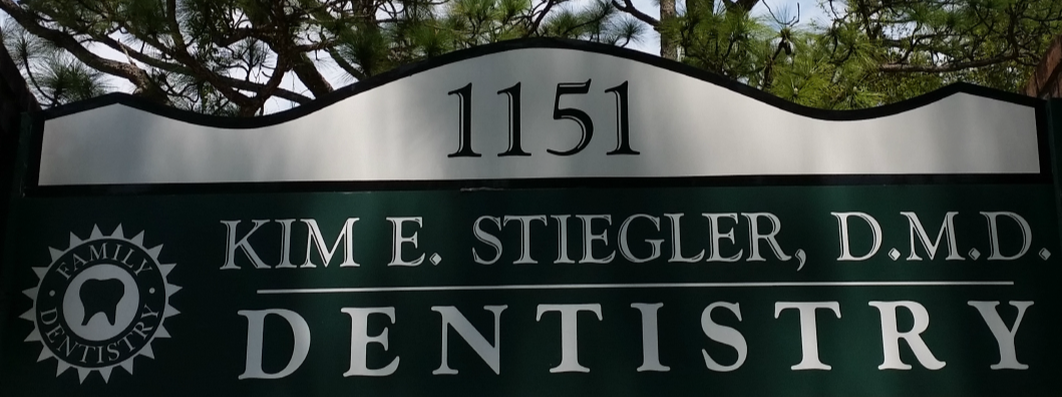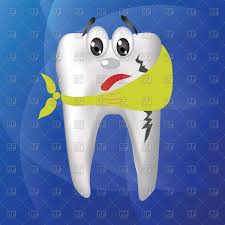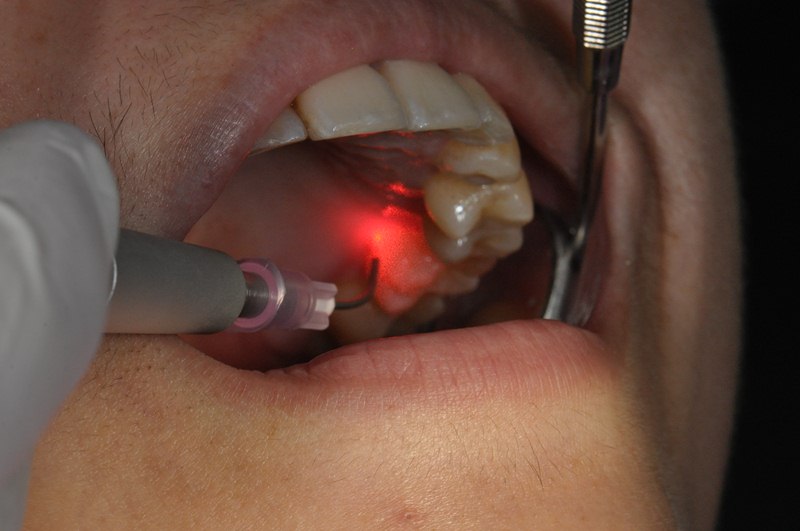A tooth cracks while you are eating, what do you do? If you think that a piece of a tooth broke off while you were eating, it is important to note if you are experiencing any pain. Usually when a tooth fractures you will feel a sharp area on the tooth with your tongue. It often seems like it is difficult to keep your tongue from touching this area and this may cause your tongue to get sore. It is important to see your dentist as soon as possible to determine the extent of damage to your tooth especially if you are experiencing pain. Most dental offices have after hours availability for their patients of record. If you are unable to contact a dentist, avoid biting on this tooth until you can get it examined. Severe constant pain could indicate that the crack has exposed the nerve of the tooth and this could lead to a tooth abscess and a dentist should be consulted as soon as possible. No pain or slight sensitivity to cold is common and it is important to avoid further injury to the tooth until it can be evaluated. Do not place an aspirin on the tooth directly because this can cause more injury to the tooth and may cause a burn of the oral mucosa. If you are experiencing pain you can take over the counter medication like acetominophen or ibuprofen for temporary pain relief but be sure to get your tooth checked by a dentist as soon as possible. A small fracture in a tooth can sometimes feel like a large hole to your tongue and may be just a minor problem but it is important to have this seen and treated appropriately to prevent more damage. Most small tooth fractures are easily repaired and should not cause you any long term problems.
|
There are 3 basic types of Laser applications in Dentistry. Hard tissue lasers are used to treat bone and tooth structure, soft tissue lasers can be used on gingiva, mucosa and soft tissue lesions, and diagnostic lasers can be an adjunct in detecting dental caries. We have incorporated a Diode Soft Tissue Laser and a Diagnostic Laser into our practice. The Diode Laser enables us to perform some surgical procedures on soft tissue lesions with more precision, less bleeding, minimal discomfort and shorter healing time. We also use it as an adjunct to treating Periodontal Disease. We also have a diagnostic Laser that, combined with a clinical exam and radiographs, helps us better diagose dental caries. I received certification in Laser Proficiency by the Academy of Laser Dentistry (ALD) before incorporating Lasers into my practice.
About 8 years ago, I took a course in Microscopic Dentistry and I was amazed at how much better I could see while performing delicate dental procedures using a Dental Microscope. I later had a equipment representative place a Global Microscope in my office for me to try. After using the demo Microscope for a few months, I was convinced that this piece of equipment would help me provide better more conservative dental care. Click on this link: https://vimeo.com/112481796 to see a short video which shows some incredible visualization and procedures utilizing a Dental Microscope!
Many TMJ (Temporo-Mandibular Disorders) can be exacerbated by stress related clenching and grinding of your teeth. Your teeth should not touch together at all during the day except when you are chewing and momentarily when you swallow. Just being aware of this and attempting to keep your teeth apart during the day can help prevent or improve these problems. NSAI medications (advil, alleve) can also provide temporary relief of pain and inflammation. Applying moist heat to the face and neck for 20 minutes alternated with 20 minutes of moist cold once a day can also be helpful. If symptoms are severe or persist you should see a dentist that has training in diagnosing and treating these disorders. If you have any questions about this just leave a comment below and I will respond or call our office 251-639-1853.
|



 RSS Feed
RSS Feed